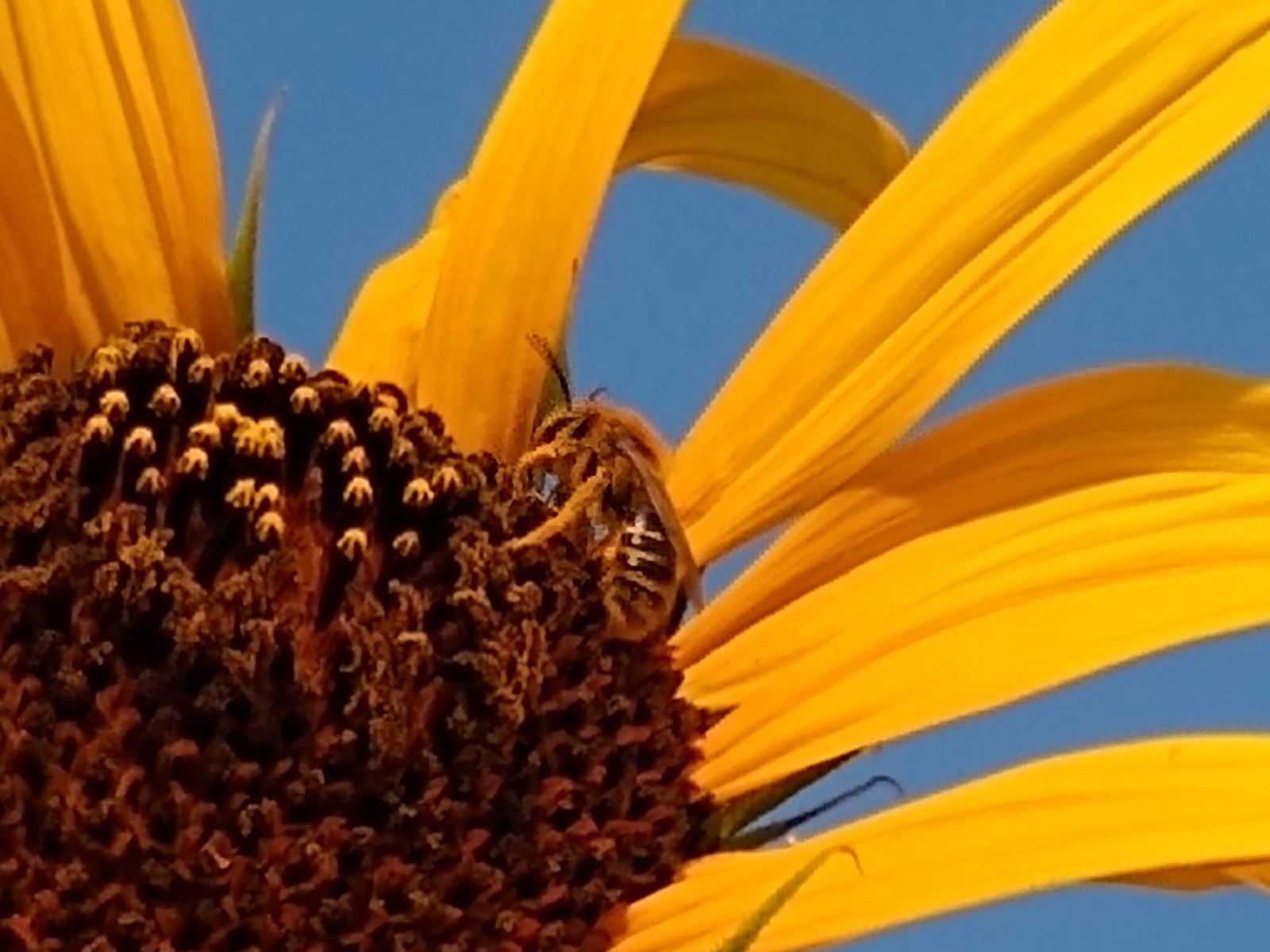Looking for the positive, I noticed
there were also many pollinators on the nightshade flowers that were not
touched. Also, the fences had health grape vines that were also hosting
different ecosystems. I also know these great plants will be back, probably
before Halloween.
The heavy machinery that is constant going up and down the ditches compact the soil. When the air is squeezed out, the soil is less of a sponge and more like modelling clay.
Being impermeable to water is bad usually. But not if you need a small pond to grow tadpoles in the desert. The fine clay particles are ideal for hiding in, reducing evaporation, and seems to prevent the growth of micro-organisms, probably by stopping light, and being pretty alkaline from dissolved salts.
Of course, if there is no water, the soil lacks any kind of binder to keep the particles together. The ditch banks are compacted and above the level of the ditches, so they are bone dry in this drought. This is good,,,if you are an antlion. These small cones help the predators set traps for the unwary ants and means there should be a lot of dragonfly looking insects in a few months.
Many animals need humans to live now. Grackles lives in human parking lots picking up scraps from grocery parking lots. Ravens live on human structures by the dumps on the mesa. These birds move into human habitations to avoid having to migrate when the weather gets cold, and natural food and shelter become scarce. Morning doves have a dapted very well to a mixed urban lifestyle, along with the rock pigeons in more build up areas. They survive on human handouts and roost near building heaters, they drink evaporative cooler drippings. The large number of roosting sites from dead branches, power lines, or lighting poles let them see potwntial threats, like coopers hawks.
Morning doves have a dapted very well to a mixed urban lifestyle, along with the rock pigeons in more build up areas. They survive on human handouts and roost near building heaters, they drink evaporative cooler drippings. The large number of roosting sites from dead branches, power lines, or lighting poles let them see potwntial threats, like coopers hawks.
Many animals need humans to live now. Grackles lives in human parking lots picking up scraps from grocery parking lots. Ravens live on human structures by the dumps on the mesa. These birds move into human habitations to avoid having to migrate when the weather gets cold, and natural food and shelter become scarce.
 Morning doves have a dapted very well to a mixed urban lifestyle, along with the rock pigeons in more build up areas. They survive on human handouts and roost near building heaters, they drink evaporative cooler drippings. The large number of roosting sites from dead branches, power lines, or lighting poles let them see potwntial threats, like coopers hawks.
Morning doves have a dapted very well to a mixed urban lifestyle, along with the rock pigeons in more build up areas. They survive on human handouts and roost near building heaters, they drink evaporative cooler drippings. The large number of roosting sites from dead branches, power lines, or lighting poles let them see potwntial threats, like coopers hawks.Of course, many plants can only live because of humans. Like these apples, grapes and chiles. They, of course need the soil to be decompacted with plows before planting.












No comments:
Post a Comment